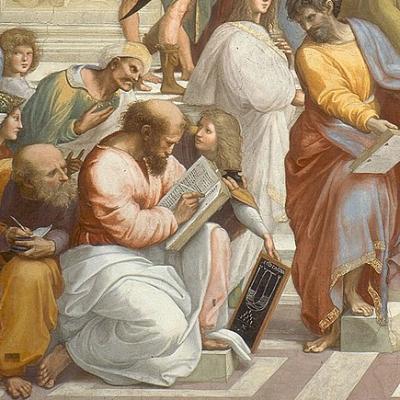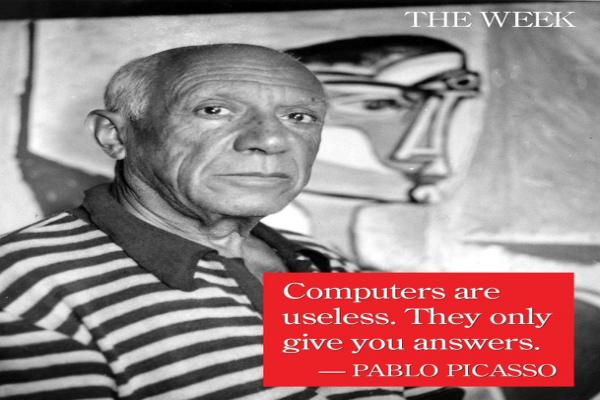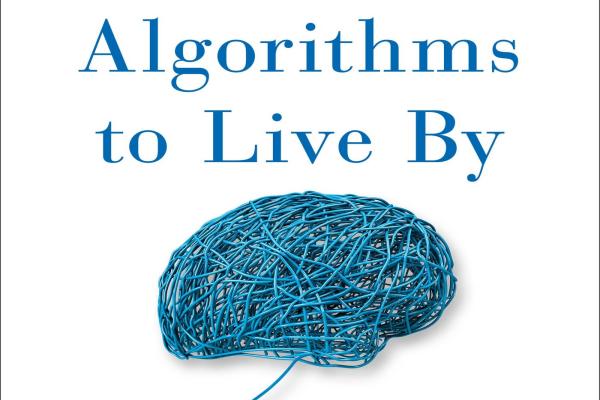Big data about Religion. Or the religion OF Big Data?
and what does all this mean, eventually?

Ancient Pitagoreans saw mathematics as the voice of “an extra-human realm of fundamental, unchanging truth apart from human experience, culture, or biology”. Today, Big Data enthusiasts often invoke a very similar worldview about the inherent truth of the outputs of their technologies. Such claims, as Gilliard and Culik put it, are very convenient: “Because the world is number, coders are removed from the burden of history and from the responsibility to examine the social context that both creates and uses their work."
This can be dangerous, especially if you use algorithms to try to understand why “things” like religion or atheism are unpopular, or not or, as that article describes, to try to answer questions like:
- Why aren’t there more atheists?
- Which conditions would speed up the process of secularization—or, conversely, make a population more religious?
What seems missing from those models as described in the article are, in the first place, really accurate definitions and understanding of what constitutes real religion/religiosity, and what is just bigotry, social inertia, opportunism… I would also like to know the answers to questions like: which outcome is most desirable and WHY? Please note that I’m not saying that such models should not be made, or that the models should answer such questions.
I’m saying that certain stuff should be the first thing in the minds of those using those models to decide or advice. And I doubt it happens often enough. I’ve also collected some food for thought on how and why this does not happen as much as it should.
“Where wisdom once was, quantification will now be.”

Computers are useless. They only give you answers. - Pablo Picasso
</em></u>
Where wisdom once was, quantification will now be. Quantification is the most overwhelming influence upon the contemporary American understanding of, well, everything, says this book review.
Technologism, which is not the same as technology, asserts itself over more and more precincts of human life, [and] so too does scientism, which is not the same as science.

<u><em><strong>CAPTION:</strong>
<a href="https://books.holmberg.io/algorithms-to-live-by/" target="_blank">Algorithms to live by</a>
</em></u>
On the same topic, here is an exercise from “The Cathedral of Computation”: “We’re not living in an algorithmic culture so much as a computational theocracy… The next time you hear someone talking about algorithms, replace the term with “God” and ask yourself if the meaning changes."
Equally good food for thought are those two passages (especially the second) from the same piece:
- “People have allowed computers to replace gods in their minds, even as they simultaneously claim that science has made us impervious to religion.”
- “Computers are powerful devices that have allowed us to mimic countless other machines all at once. But in so doing, when pushed to their limits, that capacity to simulate anything reverses into the inability or unwillingness to distinguish one thing from anything else”.
Alternative facts, anybody?
Last but not least, the same attitude is behind, the fact that “the internet has caused a cultural shift regarding what we constitute as a “fact”: “The age of Big Data makes it easier for Polarised Groups to mine for “facts” that appear to support any conclusion they want them to.” Please note that this was written in 2014.
Who writes this, why, and how to help
I am Marco Fioretti, tech writer and aspiring polymath doing human-digital research and popularization.
I do it because YOUR civil rights and the quality of YOUR life depend every year more on how software is used AROUND you.
To this end, I have already shared more than a million words on this blog, without any paywall or user tracking, and am sharing the next million through a newsletter, also without any paywall.
The more direct support I get, the more I can continue to inform for free parents, teachers, decision makers, and everybody else who should know more stuff like this. You can support me with paid subscriptions to my newsletter, donations via PayPal (mfioretti@nexaima.net) or LiberaPay, or in any of the other ways listed here.THANKS for your support!